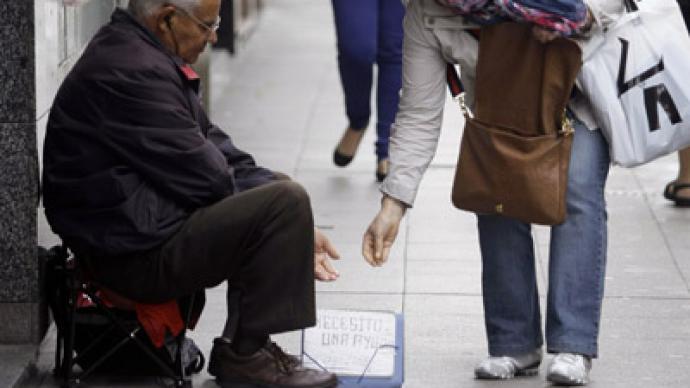Spain reluctant to accept EU cure

The EU and Spain are trying to come to terms over a rescue plan for the debt ridden European economy. The government remains unwilling to apply for international aid, but analysts say asking for a bailout is essential.
A new Spanish rescue programme to be announced next Thursday will be focused on the measures international lenders would ask in return for a bailout. As the ECB money always comes with strings attached, Spanish Prime Minister Mariano Rajoy is doubtful whether the country should ask the eurozone’s €500bn rescue fund, the European Stability Mechanism, to begin purchases of Spanish sovereign bonds. He fears EU monitors would demand tough conditions in return.Spain's battle to regain investor trust in its governmental finances has been tough on households and businesses. The economic crisis has left the country with near 25% unemployment, and austerity measures and reforms aimed at reining in debt have triggered street protests and sparked some regional tension. Spanish borrowing costs have been falling significantly, as the European Central Bank pledged two weeks ago to buy unlimited amounts of government bonds to help debt ridden economies out of trouble. High demand and lower interest rate for Spanish 10 – and 3 – year bonds in Thursday’s auction also indicated growing investor confidence. Ramon Zarate of Madrid's Emasl financial consulting group, described Thursday as a “purely a cosmetic image.”“Nothing has changed,” he said.The need to apply for financial aid should become more pressing next Friday, when the Spanish government is due to announce results of a three-month review of its financial system. The calculations include how much ESM money will be needed to recapitalise the Spanish savings banks. The country’s teetering banks have already got €100bn from the EU.Analysts say that if Spain doesn't request a bailout soon, it is only a matter of time before its borrowing costs rise to unhealthy levels again.Ramon Zarate warns that investor patience was likely to dry up fast in October if Spain does not act soon. “The next thing should be for Spain to ask for the bailout and take the volatility out of the market,'' he said.“It's playing with fire.” Analysts and investors suspect the government is dawdling on the issue because it is afraid that a bailout will hurt the ruling Popular Party's chances in regional elections in Galicia and the Basque region next month. Spain had now auctioned more than 82% of its intended debt issuance for the year, according to Craig Erlam, a market analyst for London-based Alpari UK.However,the burden remains high, as Spanish government debt stood above 70% of its GDP in 1Q 2012, while a general requirement for the EU countries, also known as the Maastricht criteria, stipulates the ceiling of 60%.














